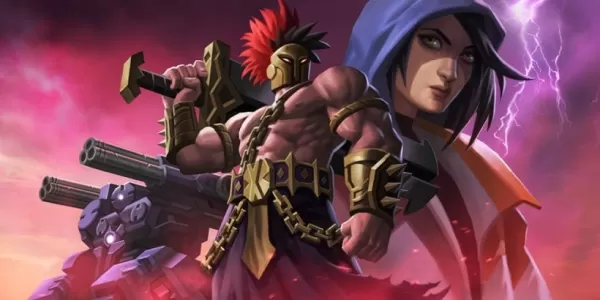In recent weeks, the gaming industry has seen a significant shift with Microsoft raising the prices of all its Xbox Series consoles and many of its accessories globally, alongside confirming that some new games will cost $80 this holiday season. This move came shortly after PlayStation similarly raised prices on consoles in some regions, and just before that, Nintendo bumped its Switch 2 accessory prices and announced its own first $80 game. These tariff-induced price hikes have arrived, creating a wave of increases that can be overwhelming to track. To understand the broader implications, I consulted with industry analysts to discuss the reasons behind these changes, the future cost of gaming, and the potential impact on the industry and its major players. The reassuring news is that video games, consoles, and major platforms are here to stay. However, the less favorable news is that gamers will indeed face higher costs for games and related products.
Why is it all so dang expensive?
The primary reason for these price increases, as explained by the analysts, is tariffs. Dr. Serkan Toto, CEO of Kantan Games, Inc., emphasized that since Microsoft's consoles are manufactured in Asia, the price hikes are not surprising. He noted that the timing of the announcement amidst U.S. tariff chaos was strategic, allowing Microsoft to push price increases globally with minimal backlash. "It was a clever move from Microsoft to use the current economic climate as a backdrop to not only push the price hikes in the U.S. but also globally," Toto remarked, highlighting the company's decision to implement these changes swiftly rather than incrementally.
Joost van Dreunen, a professor at NYU Stern and author of the SuperJoost Playlist newsletter, echoed Toto's sentiments, describing Microsoft's approach as "ripping off the Band-Aid all at once rather than death by a thousand cuts." He viewed the synchronized global price adjustment as a strategic response to tariff pressures, aiming to consolidate consumer reactions into a single news cycle while maintaining competitive pricing in a service-oriented market.
Other analysts, including Manu Rosier from Newzoo and Rhys Elliott from Alinea Analytics, also pointed to tariffs as a significant factor. Rosier noted that the timing allowed Xbox's partners and consumers to adjust expectations before the holiday season, while Elliott explained that the price increase for games would help offset the higher hardware manufacturing costs due to tariffs.
Piers Harding-Rolls from Ampere Analytics added that macroeconomic factors, such as persistent inflation and supply chain costs, also contributed to the price hikes. He mentioned that the launch price of Switch 2 and Sony's recent price increase made it easier for Microsoft to move forward with its own adjustments. Harding-Rolls also highlighted the significant price gap between Xbox and its competitors, suggesting that the U.S. saw the heaviest percentage increases due to tariff policies.
Blinking Third
The question on many minds is whether Sony will follow suit with price increases on PlayStation hardware, accessories, and games. Most analysts believe this is likely, with Rhys Elliott expressing strong confidence, particularly regarding the future of $80 games. "This is just the beginning," he stated, predicting that PlayStation would also increase software prices, following the trend set by Nintendo and Xbox. Elliott suggested that the market would bear these higher prices, with many gamers willing to pay above $70, as evidenced by the millions willing to pay $100 for early access to certain games.
Daniel Ahmad from Niko Partners noted that Sony had already raised console prices in certain regions, but the U.S. might be next. He acknowledged the reluctance of both Sony and Microsoft to raise prices in the U.S. due to its importance in console sales but suggested that Sony might follow Microsoft's lead. James McWhirter from Omdia pointed out that PS5 hardware, manufactured in China, is vulnerable to U.S. tariffs, and with Microsoft having already adjusted prices, the door is open for Sony to do the same, especially in the U.S., the world's largest console market.
Mat Piscatella from Circana was cautious about predicting Sony's actions but referenced the Entertainment Software Association's comments on the impact of tariffs on video game prices, suggesting that rising prices are a symptom of broader economic issues. Meanwhile, Nintendo indicated it may consider "what kind of price adjustments would be appropriate" if tariffs continue to fluctuate.
Video Games Are Fine... But Are We?
Amidst Xbox's price increases and the anticipation of similar moves by Sony, there's concern about the potential impact on console manufacturers. However, analysts do not see this as a significant threat. Microsoft's 'This Is An Xbox' campaign suggests the company has been preparing for this shift, focusing on rebranding as a service platform rather than solely relying on hardware sales. Harding-Rolls noted that while Xbox hardware sales might decline, the launch of GTA 6 in Q2 2026 could provide a boost.
Elliott emphasized that rising prices are unlikely to reduce overall spending on games, given their price-inelastic nature. He pointed out that early adopters will continue to purchase, and in-app purchases contribute significantly to overall spending. Rosier agreed, suggesting that while spending might shift, it may not decline, with consumers potentially favoring subscriptions, discounted bundles, and live-service games over full-priced titles.
Harding-Rolls highlighted that the U.S. might feel the impact more due to its size and the localized tariffs, while Ahmad suggested growth in Asian and MENA markets, particularly in countries like India, Thailand, and China. McWhirter noted that while full game pricing has not historically followed inflation, the quick move to $80 games by Xbox and Nintendo indicates that more publishers will follow suit. He mentioned that post-release value addition through discounting, multi-tiered pricing, DLC, and bundling would continue to be explored.
Piscatella expressed a more cautious outlook, suggesting that consumers might shift towards free-to-play and other accessible forms of gaming, such as Fortnite, Minecraft, and Roblox, as prices rise in other spending categories. He acknowledged the increasing uncertainty in the market, with potential declines in gaming spending in the U.S. as economic pressures mount.















